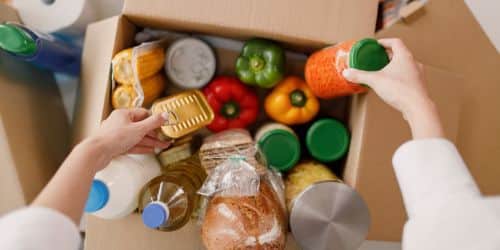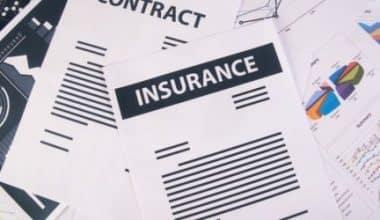Food vendors, food truck owners, caterers, restaurant owners, and others in the food service sector always need insurance protection to safeguard their company and clientele if something goes wrong. General liability insurance covers third-party bodily injury and third-party property damage claims and is one of the most beneficial plans for food enterprises.
However, food business proprietors should also consider other forms of food liability insurance, such as product liability insurance, liquor liability insurance, and insurance against food contamination or spoilage, among others. But for the purpose of this article, we will go over FLIP (Food Liability Insurance Program) and all you should know.
What Is Food Liability Insurance?
Your company is shielded from third-party lawsuits relating to property damage or personal injury by liability insurance. It covers the third party’s losses and, if you are sued, your company’s legal costs. Liability insurance for food enterprises is known as “food liability insurance.” it frequently includes coverage for product liability, which pays for claims made by customers who become ill after consuming your food.
Does Food Spoilage Get Covered by Business Insurance?
Most company insurance policies do not cover food spoilage, which pays out if a covered loss renders food unfit for consumption. You’ll need to add an exceptional food rotting or food contamination endorsement to your policy if you want this coverage. For instance, if food spoils due to a power outage, you may include additional endorsements, such as utility or equipment breakdown coverage.
What Is Food Truck Insurance?
Food truck insurance policies frequently include commercial property coverage, auto insurance, and general liability insurance. It covers any losses you can have as a food truck operator, including claims for property damage, injuries sustained by customers, and mishaps that might happen while operating your vehicle. You should include a trailer endorsement in your insurance policy if your food truck is a trailer you tow behind a car to have enough coverage.
What Is the Cost of Business Liability Insurance?
For a tiny firm that doesn’t require a lot of coverage, business liability insurance may cost as little as $200 annually. Alternatively, it can be several hundred dollars or more annually. Several variables, including your location, industry, workforce size, policy limitations, deductible, and endorsements, affect the price of business liability insurance.
Cost of FLIP ( Food Liability Insurance Program)
Food liability coverage costs vary depending on several variables. The primary factor is the kind of food service enterprise you are running. Your daily risks will be far more significant if you own and run fleets of food trucks and food trailers than if you oversee a team of private cooks. The size and scope of your food business will primarily determine the cost of your food insurance coverage, regardless of whether you operate a local farmers’ market or sell sausages from food carts outside of nightclubs. Your insurance coverage will cost more, the more significant the company.
It’s crucial to consider the kind of insurance coverage when determining prices. It’s important to know exactly what parts of your small business you want to be protected and why, as some policies charge more for adding insurance unrelated to your food-related enterprise. In this manner, you’re making the arrangements to buy the appropriate coverage rather than just any coverage.
The location of your food business is another factor influencing the price of your food liability insurance. A food vendor cooking burgers at a music festival faces a much higher risk of contracting a foodborne illness than an established restaurant in a posh city neighborhood.
The cost of food liability insurance for small enterprises typically ranges from $300 to $1,300 per year, with the cost rising as the level of coverage increases. Pay only what you need to keep your expenses down. Purchasing inland marine or commercial property insurance would cover you beyond your insurance needs. Therefore, it makes no sense if you’re a one-person lemonade shop selling lemons from your backyard.
FLIP Insurance Coverage
#1. Customer Injuries
Mishaps may occur in any establishment that serves food or drinks. General liability insurance covers anything from an ambulance ride to the cost of a lawsuit if a customer is wounded on your property and your company is sued. Covered under general liability insurance are:
- Defense costs in court
- Medical costs Court-mandated awards
- Burial costs in cases of death
Your employees are not, however, protected by this policy. You’ll need workers’ compensation insurance for that.
#2. Damage to Customer Property
You are also covered if client property is harmed by general liability insurance. Your broad liability coverage may assist in protecting the following expenses if a server spills a drink on a client’s laptop that contains crucial business documents:
- Expenses for attorneys if you are sued
- The price of purchasing a new laptop
- An agreement reached out of court
Though you might need to purchase an endorsement, general liability insurance can also shield your food service company against off-site events. For instance, if your company provides catering for a business reception and a fire breaks out in your food-warming apparatus, your policy may cover any subsequent lawsuits that claim property damage.
#3. Liability for Alcohol Hosted
Despite not covering occurrences at establishments that serve alcohol regularly, general liability insurance covers host liquor liability insurance. This insurance protects against physical harm and property loss from alcohol served at social events. This includes events unrelated to the company’s financial success, such as a party at which you serve alcohol.
#4. Advertising-Related Harm
Although you could believe that the advertising for your business is original, it’s possible to steal a competitor’s phrase or emblem unintentionally. General liability insurance covers accidental injuries from advertising. This comprises:
#5. Infringement of Copyright
Defamation includes both oral and written slander and libel.
Make sure your insurance covers this protection if you employ advertising or promotional materials to draw clients to your food service operation.
Insurance Policies & Coverage for Food Vendors
The two most frequent types of insurance that food vendors require are commercial property insurance and general liability insurance. In most cases, workers’ compensation is necessary if the company employs more than one person. You will want commercial auto insurance if you drive a food truck or move equipment. Depending on the specifics of the policy, you could require inland marine coverage to offer first-party protection for your cart or equipment.
#1. General Liability
A food vendor will typically need to acquire general liability insurance since the financial risk a liability poses to a business outweighs the cost of the coverage. A general liability policy provides extensive defense against lawsuits for which your company may be held legally accountable. Providers typically offer A general liability policy covering property damage, bodily injury, advertising hurt, and reputational harm.
If a person runs over a hose attached to your food cart and sustains injuries or if your cart becomes unsecured and collides with another vehicle, resulting in property damage, general liability insurance can assist you.
There are two coverages for food vendors that you should check to see if your general liability policy covers them or if you can add it as an endorsement. Liquor liability is the second, and product liability is the first.
#2. Commercial Property
The trailer, equipment, and food cart you use are expensive. If something goes wrong with one of them, you will have to pay for the replacement or repair of the item and the lost wages while it is broken. For this reason, consider getting commercial property insurance, which can protect your equipment. Generally, policies are constructed on a named peril basis, meaning the policy must specify what happens to it. Among the listed risks are:
- Fire: If smoke or fire damages your company.
- Theft: Should someone manage to take some of your gear?
- Wind: If the wind causes damage to your wagon by toppling it over.
#3. Commercial Vehicle
Commercial auto insurance is required for businesses that frequently use vehicles for business purposes, such as food trucks and food trailers. You will need to carry liability insurance, which will cover property damage and physical harm in the event of an accident if you are at fault, just like you would with a personal vehicle. You should research the collision and comprehensive first-party coverages, depending on the worth of your car or whether you have a loan.
#4. Inland Marine
Coverage for frequently moving equipment is provided by inland marine. BOPs frequently contain business personal property (BPP) coverage. On the other hand, the amount could be restricted to a single site or a list of locations specified in the policy. Therefore, obtain bids for inland marine insurance if your food cart or concession stand moves locations regularly. If not, examine your property policy to see whether coverage is available.
#5. Compensation for Workers
If you have at least one employee, you must carry workers’ compensation insurance in almost all states. This crucial policy covers your workers’ medical expenses and lost income if they are hurt or contract an illness due to work-related activities. If the hurt worker files a lawsuit, it may also offer some defense for your company.
Not only are workers’ compensation claims necessary in almost all states, but they can also be expensive if you don’t have coverage. The National Safety Council reports a burn injury workers’ compensation claim costs $54,173.
What Does Flip Insurance Cover?
For incidents resulting in injuries of a certain degree, Flip provides a fixed payout. While hospitals and doctors receive payment from health insurance, Flip gives you cash that you can use for whatever you like. No hold-up times. There are no problematic applications or quoting procedures.
Is Flip Insurance Worth it?
Indeed, The Property Brothers appear to have it so easy. These well-known “fixer-upper” shows portray a fix and flip as simple and completed in less than an hour, but in reality, they take much longer. But any seasoned real estate investor will tell you this isn’t the practice case.
Conclusion
Flipping a house requires a substantial time and financial commitment and is labor-intensive. Consequently, in a catastrophe, you need insurance to safeguard your work.
Furthermore, a lot of houses that require flipping aren’t in the ideal condition to begin with. Remodeling a home is a part of house flipping. Most flip properties are so in disrepair that their replacement cost is significantly less than their market worth. Because it isn’t worth the expense to repair a damaged property, insurers typically won’t provide homeowners insurance policies for properties that would sell for less money than they could be repaired or replaced.
- FOOD TRUCK INSURANCE: Coverage, Types and Cos
- HOW MUCH DWELLING COVERAGE DO I NEED?
- ACORD CERTIFICATE OF INSURANCE: What Is It & How to Get It?
- SR22 INSURANCE: What Is It & How It Works?
- PROPERTY INSURANCE: What It Covers






